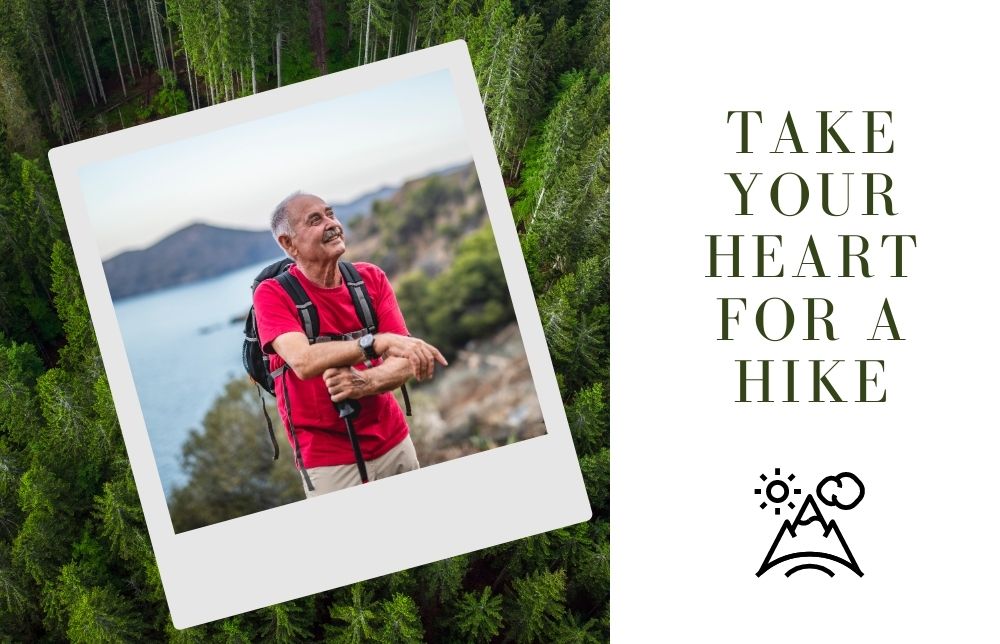
Take Your Heart for a Hike
February 1, 2021
Nearly everyone, regardless of age or athletic ability, can find a hike that offers the right level of personal challenge. Like brisk walking, hiking is a good way to improve your cardiovascular fitness, particularly if your route includes some hills, which will increase your heart rate. And hiking may even offer some unique physical and mental benefits.
Hiking Is A Natural Stress Reliever
One of hiking’s most restorative and stress-relieving powers is simply being outside in nature. Whether it’s in nature preserves, national forests, woodlands or even urban parks, spending time in green space can ease stress levels. Giving the growing consensus that stress contributes to high blood pressure and heart disease risk, anything you can do to mitigate stress is likely helpful. There’s a real sense of peace and composure you get from being outside and away from everything.
Hiking Gives More for the Core
Hiking offers a diversity of terrain that provides a natural way to engage the core muscles in your torso and to hone your balance skills. You can’t replicate that type of lateral motion from walking on a treadmill or riding a stationary bike. A stronger core means less stress on the heart.
Mapping Out Your Hike
Just as important as getting to know the trails you’re going to explore is knowing how to prepare and get the most out of it. Here are some tips to make your hikes more fun and enjoyable:
- Pole Position Using walking or trekking poles can give you an added level of security on uneven terrain. Use poles with a spiked metal tip when walking on dirt or grass. Plant the pole out in front of you as you walk to take a little pressure off your knee joints. If you have problems with stability or vision, using walking or trekking poles can give you an added level of security.
- Bring a map and hike with a partner.A companion is good for both company and safety. If you go alone, let someone know when you plan to return.
- Wear hiking boots.Choose well-fitting footwear with good ankle support. Before you wear them for longer journeys, break them in with shorter walks to avoid getting blisters. Be sure to include moleskin in your pack in case you do feel blisters beginning to develop.
- Stay hydrated.Don’t forget to take plenty of water along on your hike, especially in warm, sunny weather.
Keeping your heart healthy can be a fun, restorative, and social when you include hiking as part of your exercise routine. Along with good nutrition, healthy habits, limiting your alcohol, and managing your stress, a heart policy from MRTA and AMBA is important. It could help cover specialized heart treatments not covered by Medicare. Learn more by calling 866-615-4063 or requesting a FREE Benefits Review at www.amba-review.com.
RECENT POSTS

An Ambulance Trip Is Stressful: With MASA, the Cost Doesn’t Have to Be
People who require an emergency ambulance trip frequently ask the same question upon receiving the bill: “Why was the
Read More

AMBA’s Essential Insights in Dental Health: Understanding Cavities
Have you ever experienced pain or noticed persistent sensitivity in your teeth? You might have a cavity. Cavities are common,
Read More

Smart Holiday Season Safety Tips for Travelers
Whether to get together with loved ones or to get away from it all, people love to travel during the holiday season. In fact,
Read More

Play the Long Game: 5 Important Reasons to Purchase Long-Term Care Insurance
When it comes to your health, it’s essential to plan for the unexpected. While this is important at any age, it's
Read More

